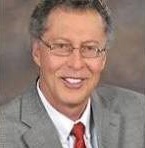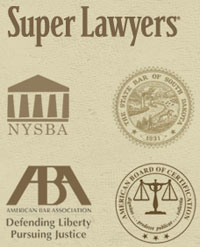I was invited last week to speak at a workshop sponsored by the Capital Journal newspaper. The purpose of the workshop was to promote a better understanding of water rights and mineral rights in South Dakota. The Journal should be justly recognized for presenting these statewide issues to the public. More than a couple in the audience came forward afterward and asked me to thank the Capital Journal as the sponsor. Over the last few years the legislature has addressed some of the natural resource matters discussed in the workshop, but many issues remain.
The workshop audience consisted of farmers, water officials and professionals. The questions and comments were telling. A number of questions showed an understanding of some of the rules of the road on water rights and mineral interests. Yet a number of questions reflected a public laboring under ever present and always-circulating urban myths which compel us to do things we shouldn’t. Two subjects of note were discussed in the talk which were of particular interest to the audience based on several comments and follow-up questions.
One of the topics discussed was transferring gravel rights and mineral rights. I submitted that many transfers and sales I have observed often do not follow the proper procedure or use the correct language needed to make a good transfer. And the matter of reserving mineral rights reflects even more mistakes. I noted actual transactions in west river deals and east river deals. The standard sales contract provided by the South Dakota Real Estate Commission compounds the problem. The language in this standard agreement leaves the grantor at risk because mineral interests are not addressed. It’s one thing to be a free-trade state but when the state by its own recommended paperwork misleads the residents of the state it is quite a different matter. When one gives a warranty deed in South Dakota he is giving a ‘warranty’ of his ownership of the surface and all that lies below it. That’s a pretty powerful guarantee. Homework should be done before giving such a guarantee, but as I stated in the talk, it is not. This is further compounded by the fact that title insurance does not cover mineral interests, and indeed some title companies will not search or report mineral interests on a written title policy. The audience by their responses in the workshop acknowledged this was a concern. Wyoming, Colorado and Montana have addressed the problem. South Dakota has not. The purpose of Wyoming’s mineral disclosure law, according to the President of the Wyoming Realtor’s Association, was to avoid the unpleasant surprise encountered by people who bought property thinking that they owned the rights to minerals only to find that a third party would appear on their land, and start digging on the property. By making the buyer aware of the severance of mineral rights, Wyoming’s disclosure law allows a prospective purchaser to make a more informed decision when purchasing.
The second problem raised by the audience surprised me. I spent some time advocating the negotiation and compromise of water drainage disputes. These are the common neighbor versus neighbor as well as property owner versus township or county disputes that often occur. I was espousing Lincoln’s admonition to lawyers that it is a better thing to compromise than litigate whenever possible. I discussed water disputes and the use of mutual written easements. An easement is the right to use another property owner’s property for a specific purpose whether that be for a pipeline, for a right of way or for the drainage of surface waters. Another easement use might be granting a landlocked owner access to a public road. There are two general advantages to entering into an easement. The first is the property remains with the owner – title is not transferred. The second is a bundle of rights that together I call time, purpose and boundaries. Of these, ‘time’ was a surprise to me. The audience was misinformed on the question of a time limit on easements. The vast majority of mutual easements in South Dakota may be limited in time. This issue is overlooked or perhaps glossed over in the course of negotiating an easement. Surface drainage problems are a natural reason for considering the use of an easement. The upper landowner may be able to enter into a drainage easement with the lower landowner if the upper owner’s activity does not fall within the specific limits South Dakota has placed on surface drainage acts. Because the placement of a time limit is not well known, a fewer number of people may consider the use of a mutual easement on a drainage issue. To the point, even with a longer term problem such as surface drainage, a lower landowner need not become married to an agreement to allow drainage over his propery. He can place time limits within the terms and conditions of a mutual easement. A time limit will allow the parties to each review the fairness of the deal 3 or 5 years down the road. This makes it a short term courtship rather than a long term marriage. Nevertheless, by the comments in the audience it was apparent that not all knew such limits could be placed in an easement.
Such information shows the value and purpose of a workshop. I appreciated the opportunity to speak on these subjects. The Capital Journal water and mineral rights workshop was an excellent resource for the community and its readers.






